The wonderful problems of Maia
Its Early Access release hasn't been smooth, but this is definitely a world worth fixing.
Maia has problems. Since its alpha launch, it's been something of a victim of its own success; promoted by Valve in a fashion not typically extended to Steam Early Access games of late, it saw an influx of new players intrigued by its mix of Dungeon Keeper and Silent Running, and in developer Simon Roth's futuristic warren through which layers of simulated systems and people course.
The problem is, those systems haven't been flowing freely, nor quite as intended. Maia's issues run from the troublesome - an interface that's lacking not only in usability but also in some key information - to the plain comical. "As a bit of a joke, I removed the limit on the speed at which chickens can multiply," says Roth. "In the Maia community, the first thing people do is cause this bug - the chickens go absolutely nuts, and they'll replicate until your computer crashes. Because each chicken only takes a few bytes of data, you can get tens of thousands of them before your computer bricks." Hold your breath if you're on the 64-bit Linux build, which is capable of providing chickens by the million. "I should remove it," confess Roth, "but it is amusing..."
Maia's alpha, then, is very alpha - there's no save state, but there are plenty of issues that blight your progress, a lack of feedback on its systems and erratic AI that clips through walls as it pursues its own mysterious agenda. It is, despite all this, a fascinating place to tinker. You start in a small, confined colony on a hostile planet that stretches out towards distant horizons, and it's up to you to find ways to explore or, should you rather, just experiment with the various tools, ecosystems and simulations that sit under your influence.
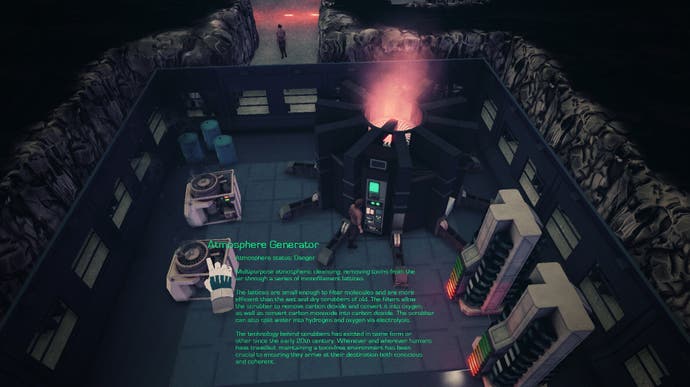
It's actually all fairly intriguing because of that obfuscation: the lack of direction, information, instability and strange hostility of Maia in its current state all feel perfectly fitting for a game that draws upon the gently morbid worlds of 70s sci-fi classics such as Silent Running and Dark Star. And it makes for some moments of fittingly black humour.
"I have problems with people putting on their space suits," says Roth. "If they're wearing a space suit and want to use an object, they can't figure out how to take their suit off. So they just stare at the object, hoping. They really want to do it, but they can't figure out how. It's amazing to see them failing the logic loop and starting at a bed or chair and not being able to sit down. It's broken, but it's endearing."
Even when everything's running as planned in Maia, it's a mysterious place where things invariably go wrong. Machines flicker and whir, and there's a certain amount of busywork in ensuring the atmosphere's breathable for your inhabitants, and that you have the right tools and resources necessary to explore the planet's surface and to spread the colony out across the wastelands. They're liable to break, but so too are the human colonists, who are all subject to complex psychological issues.
"It started off quite like the simulation in The Sims 2, where everyone has needs and they try and fulfil these needs," explains Roth. "It started off with eating, water, air - just base survival things. Then I started adding things like the lighting changing their moods, these more overarching things. And then I wondered if I could simulate the psychological needs. But there are so many paradoxes - and people were like, congratulations Simon, you've discovered philosophy! But there are so, so many different things I want to simulate."
"That's the main problem doing early access of a simulation game, though - when everything is not coming together directly, nothing works."
It's a problem that many who've followed Maia's development since its inception have been sympathetic to, but the players newer to Roth's vision have been perhaps a little less forgiving - as evidenced by angry feedback on forums around the time of Maia's release on Steam Early Access.
"It grounded us in reality very quickly," says Roth. "A lot of people had been waiting for the game, asking me every day when it's going to be on Steam - and those people will put up with bugs that they know about, because they know about the game and they've been following it. Whereas some people might just open it up think that this looks cool and immediately be like, oh, it's an alpha - they never realise that it's early access. We realised immediately that we had to pick up on what these people have been complaining about. I put out 30 bug fixes - well, they're actual changes to how the game works - in the first week. So while it's actually horrible, it's also incredibly positive in a kind of kicking you into shape thing."
"I know a lot of people criticise early access as this thing where devs take your money and don't listen to you, but I'm kind of completely the opposite where... Well, I have to be because I'm ingrained with our Kickstarter community. That's now second nature to our development process, getting instant feedback on everything we do."
So why the impetus to release at this point in time, when things aren't necessarily working so well within Maia?
"I can work in a vacuum, and every time I do a small public release or get more people onboard we always have a huge jump in quality," Roth replies. "We've got a patch coming out that could completely change the game, because some assertions that we made about our player base have been slightly knocked or changed. Because we can do the early access, that's really useful, and because I'm so open with it, I'm not too worried about making bad impressions."
It's a philosophy that might seem strange to an older generation of players, myself included - I most likely wouldn't want to read the rough first draft of a much anticipated book, or the rehearsals for a film I'm looking forward to - but it's an approach that's been proven, and one that's become second nature to a new generation.
"We took the game to Minecon, because Notch was kind enough to invite us. I had an estimated bounce rate, I thought it would be somewhere between eight and 10 minutes. But we had kids who had to be physically removed from the computer - their parents were like, okay, we need to see the rest of the convention.
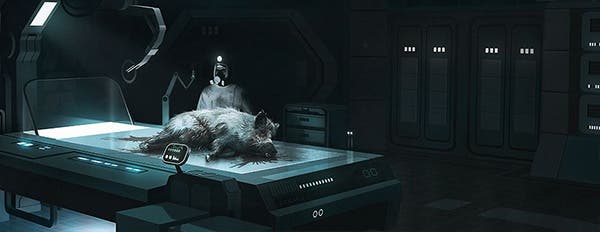
"We ended up with a bounce rate of 30 minutes on average. What I've realised now, especially considering the Steam forums and some of the responses I get, is that there's a very young audience that have grown up, or been introduced to games as alpha games, with things like Minecraft. They're really interested in getting involved in the development. There's a kid on the forums who sends me an email every day of concept art he's drawn in Paint! And he's having a great time. It is a different way to do game development."
Different indeed, and what Maia's got, as well as a fascinating foundation, is transparency. Roth's already laid out a roadmap highlighting what features are due in the coming four months, and updates are scheduled weekly - "there's one thing delivering something that's not working, there's another doing that and then not updating it at all," he says. Save states are coming, as too are ways to get a better handle on the complexities bubbling under the game's surface. For now, though, the priority is simply scrubbing up the AI.
"They'll never be as responsive as people want them to be - I have to explain that the AI sits down and makes a decision based upon what it wants to do, and that may not be what you think is important. It'll get worse once we figure out things like selfishness and socialising.
"We've got an animation for a character rubbing a dog's tummy," illustrates Roth. "Everything can be on fire and the alarm is going off, and the guy's just playing with a dog. Because we're simulating their moods, if they're in a bad mood and the colony's going to hell it'll only get worse, and they'll have a spiralling depression of getting less and less done. I already had this - the colonists were overweighted towards to fulfilling their own needs, so if you built a bed they'd get in there and never leave apart from getting up to drink water. And I thought that's a bit too realistic really - I'd created teenagers."
Maia's got problems, then, but they're endearing ones, and they're the troubles created by an imagination and creativity that hopefully, over time, will begin to flourish in its strange and hostile environment.
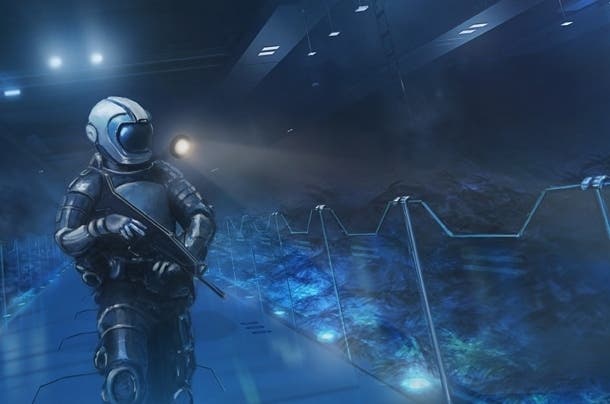


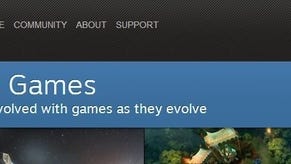
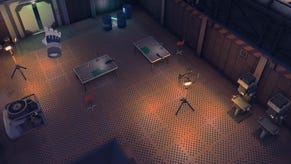

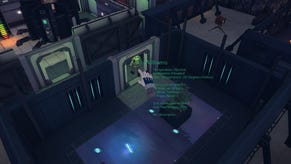

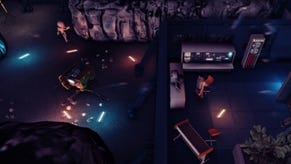
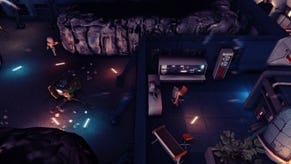


.png?width=291&height=164&fit=crop&quality=80&format=jpg&auto=webp)




.jpg?width=291&height=164&fit=crop&quality=80&format=jpg&auto=webp)
